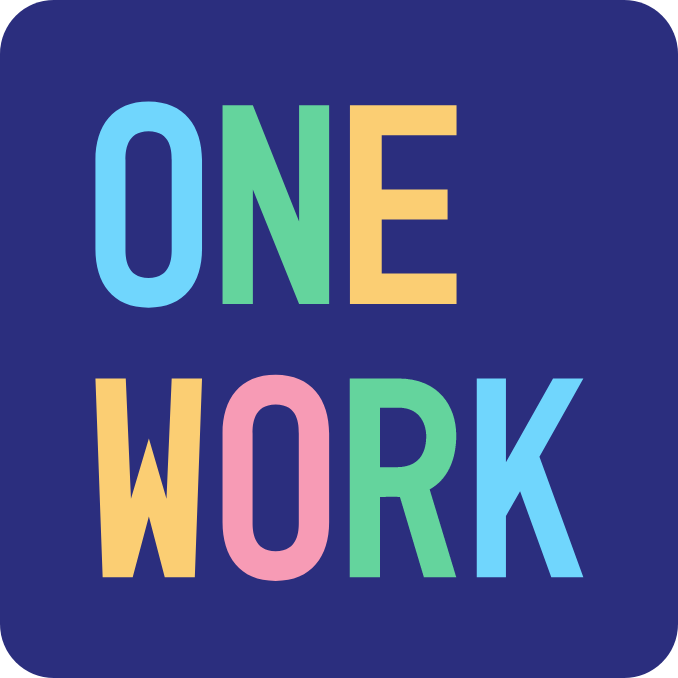Impactfully No. 82: Virtually Safe
GLAAD releases its first report on LGBT representation in video games, and natural asset companies turn conservation lands into investible assets.

People have long sought connection online, whether major services like Reddit and WhatsApp or smaller, grassroots websites serving a niche. This week, we're looking at how the online worlds in video games have become an unlikely haven for the LGBT community according to a new report from GLAAD. We also dive into an emerging approach to conservation efforts that turns conservation lands into investible assets that can be listed on the stock exchange. Let's get to it!
~ Greg
What we're reading
GLAAD, a nonprofit focused on LGBT representation, released its first report on representation in video games. (GLAAD)
- Among the notable data points: three-quarters of respondents said they could express themselves in video games more comfortably than they could in real life, and 17 percent of gamers consider themselves queer.
- GLAAD puts out a similar report for television where representation is higher: television has over five times as many LGBT characters and storylines compared to video games.
- I can only offer personal anecdotes, but this squares with my experience in one of the most popular online games, Final Fantasy XIV.
- My sister, who is part of the LGBT community, got me into the game to begin with.
- I have since met multiple organized groups in the game who welcome LGBT gamers with a wide variety of sexual and gender expression.
- The developers removed the gender lock on most of the items players can wear a few years ago, making it possible to equip female characters with male equipment and vice versa. These kinds of changes happen as a result of community feedback.
- I think the more fundamental observation is that people want to feel safe and part of a stable community – LGBT or otherwise. In this particular case, online worlds have offered a space where people feel more comfortable being themselves.
Investors are looking into a concept called "natural asset companies" that would buy up land for its environmental impact and assign it a value for benefits like carbon capture and erosion control. (NYT)
- These NACs would then be listed on the stock exchange where they would increase in value like a commodity, providing the land owners with a revenue stream to protect the lands.
- The first of these NACs filed with the S.E.C. to list on the New York Stock Exchange, but it was met with opposition by Republican lawmakers and attorneys general. They weren't alone, however: groups on the left were skeptical about financial markets getting involved in conservation efforts and of capitalism driving social impact more generally.
- For now, the group working to popularize NACs, the Intrinsic Exchange Group, is working to prove out the concept in private markets with a series of projects.
- I like this idea and its underlying premise, that protecting lands is easier if you can ascribe a value to them that outweighs their development. Pulling off that calculus is easier said than done, and some land may not be able to justify the return on investment. That open lot in a major metro area is unlikely to benefit, for example.
- But if they manage to pull this off, it strikes me as a more sustainable model. I could imagine a conservation group setting up a NAC, drawing on the revenue stream as its value increases, and using the revenue to invest in more land. That seems like a flywheel that could make a big difference in protecting ecosystems and biodiversity.
Job of the week
Your first job is often a stepping stone to something bigger: an introduction to the working world but not a job you plan to keep for the long term. Saxby's is a Certified B Corp that bucks that trend. They're a coffee company that emphasizes experiential learning through a series of cafes operated by student employees. I wrote about their student opportunities in the past – if you are a college student, there's a decent chance they have a job opening on a campus near you.
This week, Saxby's is hiring an Associate Director of Experiential Learning & Impact. They're looking for someone to contribute to their academic partnerships, B Corp recertification efforts, and other impact initiatives. It's a great way to keep things fresh with a variety of ways to make a difference!
Community roundup
- Canvus is repurposing blades from wind turbines into park benches and picnic tables. This reminds me of another company we talked about in Impactfully No. 76 that designs wooden wind turbines whose beams can be repurposed at end of life. (Yale Climate Connections)
- An international group of climate figures and European politicians is recommending reparations to help Ukraine recover from the environmental impacts from the war. Examples include removing land mines and repairing the Kakhovka Dam, whose breach flooded arable lands. (Reuters)
- NASA's new climate-focused satellite has reached orbit. It will study plankton from space, which is pretty amazing – scientists can use the results to identify changes in oceans and the predict impacts on fisheries. (NASA)
- Speaking of oceans, NOAA has expanded its coral reef alert scale to better track the risk to coral reefs as ocean temperatures rise. Corals are particularly sensitive to warming waters, and small changes in ocean temperature can cause mass bleaching events. (CNN)
- The political party aligned to Imran Khan, Pakistan's former Prime Minister, won more seats than expected in the country's general election. Khan is currently in jail but has used artificial intelligence to replicate is voice and image to rally supporters from behind bars, adding to the anxieties of AI impacting politics. (NYT)
- The U.S. Postal Service announced a plan to cut emissions by 40% by diverting packages from air transport to ground transport, purchasing electric vehicles for their delivery fleet, and consolidating sorting and processing hubs. (AP)
- California's plastic bag ban had an unintended effect: more plastic by weight found its way into landfills. (NYT)
Hot job opportunities
- Energy Efficiency Analyst – 3R Sustainability – Remote
- Relationship Banker – Mascoma Bank – Woodstock or Windsor, VT; Lyme, NH
- Order Processor – Jeni's Splendid Ice Creams – Goodlettsville, TN
- ESG Compliance Specialist – Overture Promotions – Location
- Regional Sales Manager, Midwest – Bonduelle – Remote
- Design Consultant – Solar States – Remote
- Account Manager – Scout Books – Remote (part time)
- Principal Product Consultant – Kin + Carta – Remote
- Paid Social Specialist – Graduation Alliance – Remote
- Maintenance Technician – Living Room Realty – Portland, OR
Hiring for mission-driven talent? Post a job for free on our job board.
Looking for a job? Submit your resume to our talent pool, and let social impact companies come to you.
Resource of the week
It seems like you can track just about anything these days, but data is useless unless you can draw insights from it. Maybe it's the engineer in me, but I love a good, data-driven decision, especially when it comes to making an impact. After all, we really ought to be able to see the ways we're making a difference.
So I got curious about calculating my carbon footprint, and let me tell you, there are a ton of them out there! I like the calculator that UC Berkeley put together under the CoolClimate banner, however: it does a good job breaking down your impact by category so you can see your carbon usage, and it offers a section with suggested improvements.
Test your knowledge
Last week, I asked you about when the recycling symbol got its start. It debuted in 1970 on Earth Day – which also happens to be the first Earth Day ever. The symbol originated from a contest held by a recycled paperboard company and won by a student. Impressive stuff to design something universally recognized, much less at that age!
I'm always interested in how politics has shaped the climate debate globally, and one topic that always comes up at the annual COPs is who should pay for the renewable energy transition and the impacts of industrialization. That made me curious:
Which country has installed the most solar panels?
Maybe you'll be as surprised as I was – this country is known for pushing back on climate restrictions to avoid stunting their economic growth, but it turns out they're outpacing everyone in this particular area.
Email me your guess, and I'll send one lucky winner a couple of One Work stickers!
I am recovering from whiplash in the season finale of The White Lotus. You can find me on LinkedIn and Threads.
